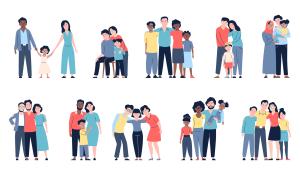Over the last four years the Children’s Commissioner has heard from a million children, parents and carers. Without fail, one of the most common concerns they share is about growing up in a digital world or parenting this generation’s use of social media.
The Commissioner’s recent report on children’s experiences of online pornography, and the earlier research on the impact of nudification tools and sexually explicit deepfakes, paint a stark picture of an online world in 2025 that is, in many ways, completely unfit for children.
That’s why today the Children’s Commissioner Dame Rachel de Souza is launching recruitment for a new group of engaged and thoughtful young people to make sure children’s views are reflected in how the online world is made safer for them.
Under her tenure, the Commissioner has overseen the progression of the Online Safety Act 2023 through parliament and is a named statutory consultee of this new law which is designed to make the online world safer for children. With this Act now coming into force, the Commissioner will be monitoring children’s online experiences and is setting up a new working group to help her do that.
Much of the onus to tackle the significant problems online falls to Ofcom, which is the regulator under the Online Safety Act 2023 charged with ensuring online sites and apps are safer by design, especially for children.
This means protecting children from seeing harmful content when they go online, protecting them from being contacted by strangers, and making sure that effective age checks are in place so they cannot stumble across pornography or other age-inappropriate content. Young people experience the online world in a very different way to their parents, carers and the adults around them. That’s why, in developing the codes of practice for sites and apps to protect children, which came into force this summer, Ofcom spoke to 27,000 children about their online experiences. The Online Safety Act placed a legal requirement on Ofcom to consult the Commissioner’s office, and children’s voices must remain central to the next phase of work: understanding how the online sites and apps are keeping people – particularly children – safe.
Children’s Commissioner Dame Rachel de Souza said:
“We cannot lose sight of the rapidly evolving online landscape and emerging risks for children, so for the Children’s Code to be effective and fit for the future, it must keep pace with emerging technology.
“Children are growing up in a digital world that is unrecognisable to previous generations, whose childhoods didn’t include a life online. They experience being online in a fundamentally different way to adults, so as Children’s Commissioner, my priority is listening to children and making sure their views are reflected in the decisions made about their lives. Through this work with Ofcom, our joint vision is to make the online world a safer place for all children well into the future.”
The Children’s Commissioner and her team will be running a new advisory board made up of young people aged 13 to 18, working with and on behalf of Ofcom. The group will share their experiences of the online world to help Ofcom make the code as effective as possible to improve online safety for children.
Recruitment for the new advisory group, which will be made of up to 15 young people aged 13 to 18 from across England with an interest in online safety and the online world, opens today. The Commissioner’s office would like to hear from young people about what they think needs to happen to make the online world safer for children.
Through this group the Commissioner’s office will work with Ofcom to track children’s online experiences so we can assess whether safety is improving in practice.
Ofcom Chief Executive Dame Melanie Dawes said:
“Our new rules are a reset for children’s online safety – helping give them better protections from adult content, safer social feeds, and more control over their online experiences.
“Children’s voices have been pivotal in developing these new rules but for them to be effective against new and emerging risks, it’s crucial children’s experiences continue to shape how we make the online world safer. The new youth panel will provide invaluable insights to our work and we look forward to working with the young people involved.”
For more information and to apply head to our application form, or scan the QR code at the top of this post. The deadline for applications is 23:59 on Sunday 26th October 2025.






